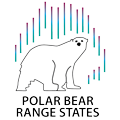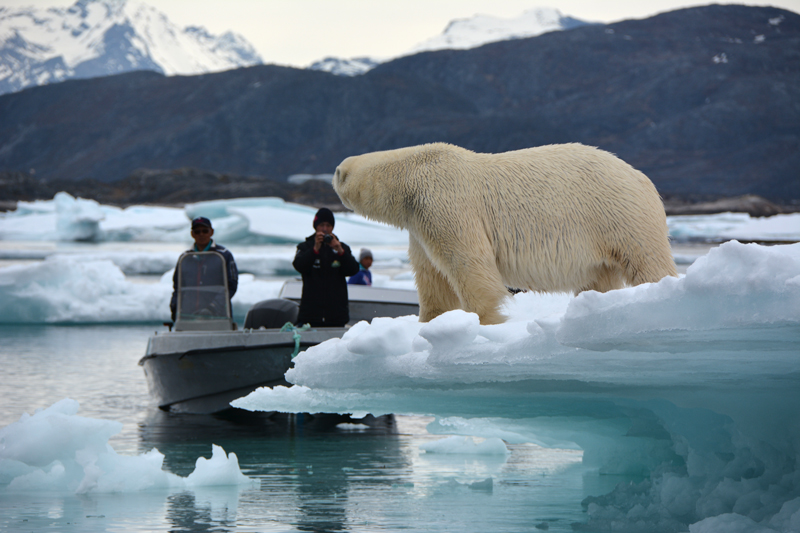Communications Working Group
The Range States Communications Working Group has been tasked with all Circumpolar Action Plan (CAP) operations related to communications activities, from developing the Range States website to communication materials such as educational resources related to polar bear biology, status and conservation.
Over the course of the 2015-2017 and 2018-2020 CAP Implementation periods, the Communications Working Group provided regular updates, via the Range States website, about the outcomes of CAP Actions, and was responsible for the dissemination of meeting materials for each Meetings of the Parties.
Over the course of the first 2-year CAP Implementation Plan (2015-2017), the Communications Working Group developed a Range States Communications Plan that included regular information updates about the outcomes of the CAP to the Range States. This communications plan contains a strategy on climate change in order to bring global focus to the threat to the Arctic and to polar bears, as well as the need for the global community to reduce GHG emissions.
Climate Change Communications Working Group
The Climate Change Communications Working Group was created in the 2020-2023 CAP Implementation period to serve as a collaborative team of Range States members and invited specialists that would communicate to the public, policy makers, and legislators around the world the importance of mitigating GHG emissions to polar bear conservation.
During the 2020-2023 CAP Implementation period, the Climate Change Working Group developed the Climate Change Communications Strategy to identify key messages about the impact of climate change on polar bears and their Arctic habitat with the aim of sharing this knowledge with the global community. These key messages are built around a strategic framework intended to support ongoing communication efforts by the Range States, and to foster global awareness of climate change as the most significant threat to polar bear conservation.
Climate Change Communications Actions
Circumpolar Action Plan; 2020-2023 Implementation Plan:
CAP 2020-2023 Implementation Plan:
Objective 2, 2020-2023 Implementation Plan
Objective 2 Actions:
CCC - A2 - Develop a climate change communications plan that outlines key messages (e.g., how climate change effects vary among subpopulations on both temporal and spatial scales, impacts to prey and denning habitat) regarding the threat to the Arctic and to polar bears from climate change and the need for the global community to reduce GHG emissions
CCC - A3 - Identify strategic communications opportunities for the Range States to provide information regarding the threat to the Arctic and to polar bears from climate change and the need for the global community to reduce GHG emissions
CCC - A5 - Enter into climate change communications partnerships with organizations that have targeted audiences and strong public reach
Circumpolar Action Plan; 2023-2025 Implementation Plan:
CAP 2023-2025 Implementation Plan:
Objective 2, 2023-2025 Implementation Plan
Objective 2 Actions:
CCC-A4 - Post and maintain key information related to the Climate Change Communications Strategy on the Polar Bear Range States website.
CCC-A5 - Enter into climate change communications partnerships with organizations that have targeted audiences and strong public reach
CCC-A6 - Communicate key messages to the public.
Objective 3, 2020-2023 Implementation Plan
Objective 3 Actions:
EH - A7 - Develop messages about the importance of conserving essential habitat
Other Communications actions:
Communications Working Group (Comms WG)
Members:
Contacts:
Angelina Gnedenko (Russian Federation; Russian Research Institute for Nature Protection)
Stanislav Belikov (Russian Federation; Russian Research Institute for Nature Protection)
TBD (Norway; Norwegian Environment Agency)
TBD (Greenland; Ministry of Fisheries and Hunting)
Climate Change Communications Working Group (CCCWG):
Range State members:
Contact:
Angelina Gnedenko (Russian Federation; Russian Research Institute for Nature Protection)
Lindsey Mangipane (United States; U.S. Fish and Wildlife Service)
Stanislav Belikov (Russian Federation; Russian Research Institute for Nature Protection)
TBD (Norway; Norwegian Environment Agency)
TBD (Greenland; Ministry of Fisheries and Hunting)
Invited specialists:
Andrea Norgren (World Wildlife Fund - Arctic Programme)
Emily Ringer (Polar Bear Specialist Group and Polar Bears International, USA)
Kristin Laidre (University of Washington, USA)
Larry Carpenter (Wildlife Management Advisory Council, Northwest Territories, Canada)
Lisa Lidgus (Saint Louis Zoo, USA)
Magnus Andersen (Norwegian Polar Institute, Norway)
Melanie Lancaster (World Wildlife Fund - Arctic Programme, Sweden)
Melanie Virtue (Conservation of Migratory Species of Wild Animals, USA)
Nicole Whittington-Evans (Defenders of Wildlife, USA)
Paul Irngaut (Nunavut Tunngavik Incorporated, Nunavut, Canada)
Whitney Kellie (Alaska Nannut Co-Management Council)

